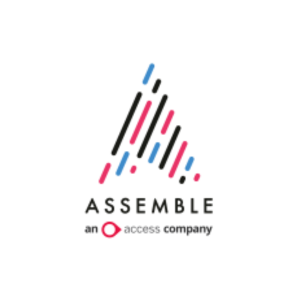Insights
INSIGHTS
All Topics
The charity metaverse in-progress
05 Aug 2022by Helen Olszowska
We look at how philanthropic principles are being re-imagined in the metaverse and how you can get involved
The metaverse is one part of Web3 – the term used to describe the future of the internet. It’s based on lots of new technologies and ideas working together to evolve the way we use the web.
The metaverse is imagined to be an immersive online experience where we interact with each other using avatars – a bit like virtual reality but underpinned by different philosophies and tools.
Bits of it already exist. Groups of innovators are building pieces of the metaverse that will eventually come together to form a seamless online universe, like the pieces of a puzzle.
“People might say the metaverse is its own thing and it can exist independently of blockchain and NFTs and cryptocurrencies. But I like to think about them all under one umbrella, because they’re all emerging at the same time,” says David Mitchell, Cryptocurrency and Digital Fundraising Manager at Edinburgh Dog and Cat Home.
How is the metaverse supporting charities?
Many of the principles shaping the metaverse are charitable in nature. “The space is often populated by people who are idealistic and future-focussed,” according to Mitchell. For example, Betterverse is in the process of creating an immersive, virtual space to support the real-world work of charities.
Like many (but not all) of these projects they are using Non-Fungible-Tokens (NFTs) as an entry point for donors. In this case, donors receive an NFT tree in return for their donation. It’s a unique digital tree that will grow over time and can be traded.
Jane Curtis, Founder, Charity Event Specialists describes the ways an NFT can be used in projects. “It can be the access pass into a project, the membership, if you like.
Usually there’s some monetary value attached to it, so it’s also a way for a project to seed fund instead of going out to venture capital.” All or some of the funds raised from an NFT project might be donated to a charity too.
The Betterverse NFTs also use blockchain technology so that donations can be tracked as they are spent in the real world by the charity partners.
Donating to receive an NFT will also eventually give donors access to the Betterverse as it becomes a space in the metaverse. The value attached to an NFT is called its utility. As well as having monetary value, many NFTs have membership utility.
The role of charities in shaping the metaverse
New spaces in the metaverse are being created all the time, but despite the best charitable intentions, some are forming without the benefit of the sector’s expertise.
Curtis is a member of Honey Badges who have formed Philanthrop3 alongside Solsisters. Philanthrop3 aims to bring together charities and NFT projects to share experiences and learn together. They have already developed a set of resources to help charities and NFT project founders collaborate.
How charities can benefit from the metaverse
Benefitting from NFT projects
If an NFT project is philanthropic, the founders will often be looking for charities to benefit when it becomes ‘minted’ – when the NFTs have been sold.
The Edinburgh Dog and Cat home recently received a donation of $5,000 from a project called Dogs Unchained. Mitchell says, “a lot of the NFT projects are based on cats and dogs. And a lot of those cats and dogs projects have a philanthropic aspect built in from the ground up. They often take some of the profits they generate and use it to support dogs, cats, and animals that are in need.”
It’s not just having beneficiaries that make cute NFTs that will lead to success for charities with NFT projects. Mitchell also suggests that becoming “crypto-friendly” is important for charities. The Dogs Unchained donation was made using cryptocurrency.
Collaborating with existing metaverse spaces
Allbright, the women’s members club established in London in 2018 to support women leaders has launched Allbright Meta - a version of their offering within the metaverse.
They have established a club within an existing metaverse space called Decentraland, to bring digital members together. Organisations working for social good have appeared as speakers at the digital version of the club to connect with potential donors.
The importance of partnership
Curtis and Mitchell both agree that success for Web3 philanthropy will come down to charities and NFT projects forming effective partnerships. Mitchell explains, “NFT projects have technical expertise, they have an understanding of operating within the metaverse and often they have a strong desire to have real world impact, but they aren’t sure of the best way of doing that. Charity organisations are the other side of that equation.”
By learning from each other’s expertise, charities and NFT projects or metaverse creators can explore the opportunities for philanthropy in this new, immersive digital world.
Helen Olszowska
More on this topic
Recommended Products
19 Dec 2024by Christine Chiu
How to recruit digital volunteers
10 Dec 2024by Laura Stanley
How to revisit your charity’s storySponsored Article
06 Dec 2024by Ioan Marc Jones
How charities stopped centring service users
Our Events
Charity Digital Academy
Our courses aim, in just three hours, to enhance soft skills and hard skills, boost your knowledge of finance and artificial intelligence, and supercharge your digital capabilities. Check out some of the incredible options by clicking here.




















